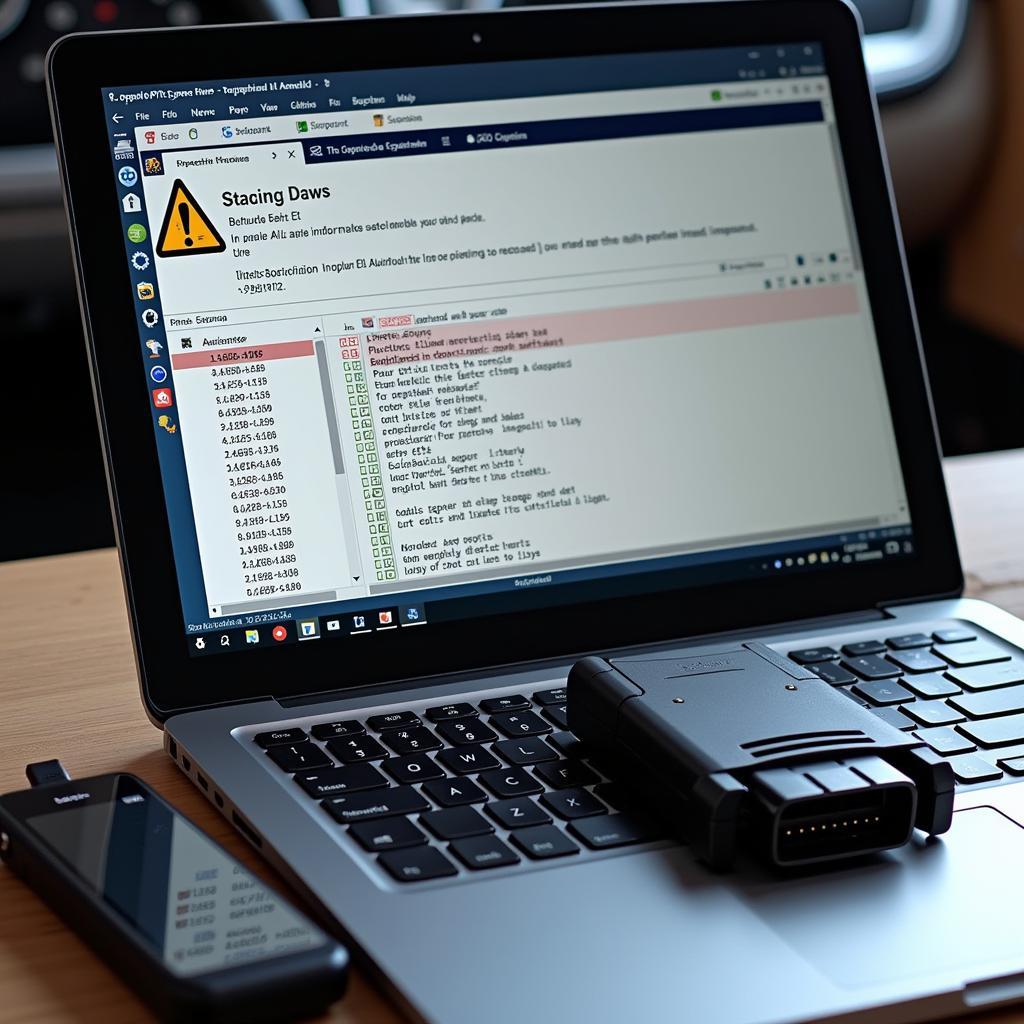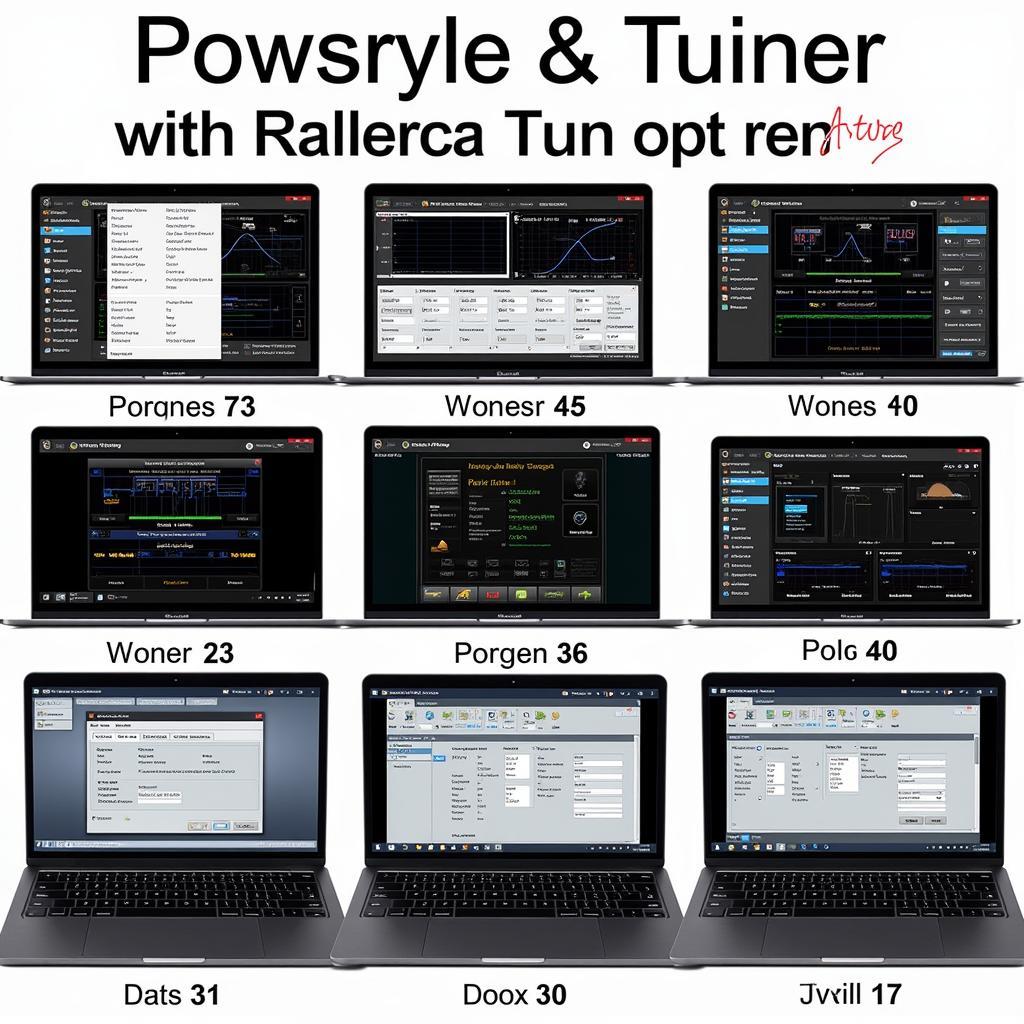Owning a Porsche Cayman is a dream come true for many. But when your dream car starts acting up, especially in the rear, it can be a nightmare to diagnose and fix. “Porsche Cayman diagnostics rear” is a common search term for owners experiencing issues. This guide will delve into common rear-end problems, advanced diagnostics, and remote software solutions.
Common Rear-End Issues in Porsche Caymans
Several components in the rear of your Porsche Cayman can trigger warning lights or cause drivability problems. Here are a few common culprits:
- Parking Assist System Malfunctions: Given the Cayman’s sleek design, parking can be tricky. If your parking sensors are misaligned or malfunctioning, it can lead to inaccurate readings and frustrating beeps.
- Rear Light Failures: A faulty taillight or brake light isn’t just an inconvenience; it’s a safety hazard. Often, the issue stems from a blown bulb, but it could also signal a wiring problem.
- Suspension System Errors: The Cayman’s responsive handling relies on a sophisticated suspension system. Worn bushings, faulty sensors, or even software glitches can impact performance and trigger warning lights.
The Power of Remote Diagnostics for Your Porsche Cayman
Gone are the days when diagnosing car problems meant a trip to the mechanic and hours of waiting. Remote diagnostics have revolutionized car repair, especially for complex vehicles like the Porsche Cayman.
- Pinpointing Problems with Precision: Remote diagnostics use specialized software to communicate with your car’s computer, retrieving fault codes and real-time data that pinpoint the exact issue.
- Saving Time and Money: Imagine diagnosing a problem from your driveway. Remote diagnostics eliminate unnecessary trips to the mechanic and help target repairs, saving you valuable time and potentially costly guesswork.
- Accessing Expert Help Anywhere: With remote diagnostics, expert technicians can access your Cayman’s data from anywhere in the world, providing specialized knowledge and support.
Understanding Fault Codes: Your Cayman’s Cryptic Messages
When your Porsche Cayman experiences an issue, its onboard computer generates fault codes, which are like cryptic messages that hold the key to understanding the problem.
- What Fault Codes Tell You: These codes are alphanumeric representations of specific malfunctions detected by the car’s various sensors and systems. They can indicate anything from a minor sensor glitch to a more serious mechanical failure.
- Decoding the Mystery: While fault codes may seem like a foreign language, they provide crucial information for technicians. Using advanced diagnostic tools, they can decode these codes, identifying the affected system and the potential causes of the problem.
Beyond Diagnostics: Remote Software Programming and Installation
Modern cars are becoming increasingly reliant on software, and your Porsche Cayman is no exception. Remote software programming takes diagnostics a step further, allowing for remote fixes and upgrades.
- Seamless Software Updates: Just like your smartphone, your Cayman’s software needs regular updates to optimize performance and address potential vulnerabilities. Remote programming allows technicians to install these updates wirelessly.
- Unlocking Hidden Features: Some features in your Cayman might be dormant or require specific software configurations to activate. Remote programming can unlock these hidden gems, enhancing your driving experience.
- Addressing Software-Related Issues: Sometimes, a software glitch or incompatibility can trigger warning lights or cause performance issues. Remote programming allows technicians to pinpoint and rectify these software-related problems quickly and efficiently.
Cardiagtech: Your Trusted Partner for Porsche Cayman Diagnostics and Repair
If you’re experiencing issues with your Porsche Cayman, especially in the rear, Cardiagtech offers expert diagnostics, remote programming, and technical support.
- Experienced Porsche Technicians: Our team has extensive experience working with Porsche vehicles and understands the intricacies of their complex systems.
- Cutting-Edge Diagnostic Technology: We utilize the latest diagnostic tools and software to provide accurate and efficient troubleshooting.
- Commitment to Customer Satisfaction: At Cardiagtech, we’re dedicated to getting your Porsche Cayman back on the road quickly and safely.
“Investing in preventative diagnostics for your Porsche Cayman is like scheduling regular check-ups with your doctor – it can save you from major headaches down the road.” – John Miller, Senior Porsche Technician at Cardiagtech
Don’t let rear-end issues spoil your Porsche Cayman driving experience. Contact Cardiagtech today for expert diagnostics, remote programming, and reliable repairs.
Contact Us:
Phone: +1 (641) 206-8880
Email: CARDIAGTECH[email protected]
Office: 276 Reock St, City of Orange, NJ 07050, United States
FAQs about Porsche Cayman Rear Diagnostics
1. How often should I get my Porsche Cayman’s diagnostics checked?
It’s generally recommended to have your Porsche Cayman’s diagnostics checked annually or every 10,000 miles, even if you haven’t noticed any issues.
2. Can I use a generic OBD-II scanner for Porsche Cayman diagnostics?
While a generic OBD-II scanner can read basic engine codes, it won’t provide the depth of information needed to diagnose complex issues in your Porsche Cayman. Specialized Porsche diagnostic tools are essential for accurate troubleshooting.
3. What are some signs that my Porsche Cayman needs a software update?
If you experience warning lights, performance issues, or glitches with your infotainment system, it could indicate the need for a software update. Contact a specialized Porsche technician to diagnose and address the issue.
4. Can remote programming void my Porsche Cayman’s warranty?
It’s important to note that unauthorized software modifications can potentially void your warranty. Ensure that any remote programming is performed by a reputable technician using approved software and methods.
5. Is it safe to drive my Porsche Cayman if a rear warning light is on?
While some warning lights might indicate minor issues, others could signal a serious safety concern. It’s always best to err on the side of caution and have any warning lights addressed by a qualified technician promptly.


